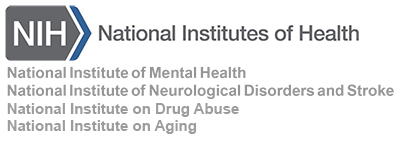The complement system, neuronal injury, and cognitive function in horizontally-acquired HIV-infected youth.
| Title | The complement system, neuronal injury, and cognitive function in horizontally-acquired HIV-infected youth. |
| Publication Type | Journal Article |
| Year of Publication | 2016 |
| Authors | McGuire, JL, Gill, AJ, Douglas, SD, Kolson, DL |
| Corporate Authors | CNS HIV Antiretroviral Therapy Effects Research (CHARTER) Group |
| Journal | J Neurovirol |
| Volume | 22 |
| Issue | 6 |
| Pagination | 823-830 |
| Date Published | 2016 12 |
| ISSN | 1538-2443 |
| Keywords | Adolescent, Adult, Anti-HIV Agents, Biomarkers, Brain, CHARTER, Cognition, Cognitive Dysfunction, Complement C1q, Complement C3, Connectome, Cross-Sectional Studies, Disease Transmission, Infectious, Female, HIV Infections, Humans, Internal, Male, Middle Aged, Neurofilament Proteins, Neurons, Retrospective Studies, Synapses |
| Abstract | The complement system (C1q/C3) is a key mediator of synaptic pruning during normal development. HIV inappropriately induces C1q and C3 production in the brain, and reduces neuronal complement inhibition. HIV may thus alter neural connectivity in the developing brain by excessively targeting synapses for elimination. The resultant pattern of neuronal injury may fundamentally alter neurodevelopmental and cognitive processes differentially across ages. This study aimed to (1) measure the association between the cerebrospinal fluid (CSF) complement factors (C1q/C3) and a marker of neuronal injury (NFL) in HIV+ subjects; (2) quantify the differences in CSF C1q/C3 between HIV+ youth and older adults; and (3) define the relationship between CSF C1q/C3 and cognitive impairment in each age group. We performed a retrospective cross-sectional study of 20 HIV+ 18-24-year-old youth and 20 HIV+ 40-46-year-old adults with varying levels of cognitive impairment enrolled in the CNS Antiretroviral Therapy Effects Research study. We quantified C3, C1q, and NFL by ELISA in paired CSF/plasma specimens. We found that CSF C1q correlates with NFL in all subjects not receiving antiretroviral therapy (n = 16, rho = 0.53, p = 0.035) when extreme NFL outliers were eliminated (n = 1). There was no difference in plasma/CSF C1q or C3 between older adults and youth. In 18-24-year-old youth, a nearly significant (p = 0.052) elevation of CSF C1q expression was observed in cognitively impaired subjects compared to cognitively normal subjects. Further investigation into the role of the CNS complement system in the neuropathogenesis of HIV is warranted and should be considered in a developmentally specific context. |
| DOI | 10.1007/s13365-016-0460-5 |
| Alternate Journal | J Neurovirol |
| PubMed ID | 27273074 |
| PubMed Central ID | PMC5127892 |
| Grant List | F30 MH102120 / MH / NIMH NIH HHS / United States HHSN271201000030C / MH / NIMH NIH HHS / United States P01 MH105303 / MH / NIMH NIH HHS / United States HHSN271201000036C / MH / NIMH NIH HHS / United States R01 MH104134 / MH / NIMH NIH HHS / United States R01 MH095671 / MH / NIMH NIH HHS / United States N01 MH022005 / MH / NIMH NIH HHS / United States K12 NS049453 / NS / NINDS NIH HHS / United States P30 MH097488 / MH / NIMH NIH HHS / United States |

